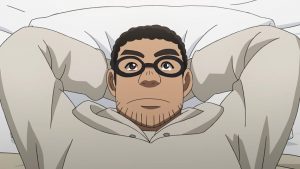 I think the most telling thing I can say about this episode of Gurazeni is that it’s very unlikely any other series would even have attempted it. Maybe Giant Killing, but it’s hard to think of any others that have the attention to detail and the trust in their audience. And “detail” really is the key word here – this is a story about the full experience of being a major league ballplayer in Japan, warts and all. And it’s quite clear from the last 19 episodes that experience is very different from what it would be in America.
I think the most telling thing I can say about this episode of Gurazeni is that it’s very unlikely any other series would even have attempted it. Maybe Giant Killing, but it’s hard to think of any others that have the attention to detail and the trust in their audience. And “detail” really is the key word here – this is a story about the full experience of being a major league ballplayer in Japan, warts and all. And it’s quite clear from the last 19 episodes that experience is very different from what it would be in America.
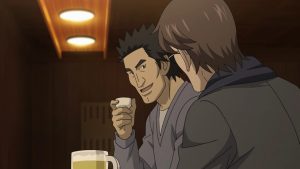 There are two men at the focus of this episode. One is a 32 year-old Spiders’ reserve catcher named Tohko-san who, despite being quite talented, has been riding the shuttle between the minors and majors for most of his career. The other is a 38 year-old lefty starter named Nishigouchi-san. He’s had a solid career with 115 wins, but is coming off a major injury. Both have been DFA’d by their clubs, forcing them to face the world of free agency – which is terrifying for both of them, for different reasons. Two guys, neither major characters, neither especially heroic or exceptional. What other sports series would build an episode around that?
There are two men at the focus of this episode. One is a 32 year-old Spiders’ reserve catcher named Tohko-san who, despite being quite talented, has been riding the shuttle between the minors and majors for most of his career. The other is a 38 year-old lefty starter named Nishigouchi-san. He’s had a solid career with 115 wins, but is coming off a major injury. Both have been DFA’d by their clubs, forcing them to face the world of free agency – which is terrifying for both of them, for different reasons. Two guys, neither major characters, neither especially heroic or exceptional. What other sports series would build an episode around that?
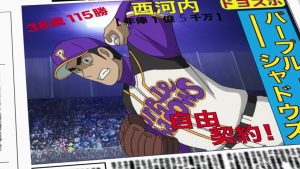 Tohko has been offered a front office job, a rare plum for a guy his age – one his friend and former college teammate (now a reporter) urges him to accept. But Tohko knows he can still play, and can’t let go of the dream of being a ballplayer. For Nishigouchi there are practical concerns – his family is having major financial troubles, and he needs to keep playing because he needs the money. It’s a reminder that for most Japanese pro ballplayers, it isn’t a life of glamour and wealth – they have to think about their lives after baseball (which is of course the premise with Bonda that started the whole series).
Tohko has been offered a front office job, a rare plum for a guy his age – one his friend and former college teammate (now a reporter) urges him to accept. But Tohko knows he can still play, and can’t let go of the dream of being a ballplayer. For Nishigouchi there are practical concerns – his family is having major financial troubles, and he needs to keep playing because he needs the money. It’s a reminder that for most Japanese pro ballplayers, it isn’t a life of glamour and wealth – they have to think about their lives after baseball (which is of course the premise with Bonda that started the whole series).
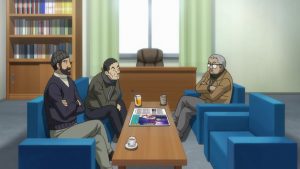 Free agency certainly isn’t glamorous in NPB – a cattle call two-part tryout in front of reps for all 12 teams (and more, as it turns out). Nishigouchi’s ace in the hole is that Spiders’ manager Tanabe-san mentored him as a youngster with the Kobe Oxen, and wants to sign him now. But the GM is trying to sign an American southpaw, who Tanabe suspects is stringing the team along while he tries to cut a deal to stay in MLB. It’s a hard, cruel business – and the manager and GM are clearly at crossed purposes here. The fact is, guys in their 30’s have almost no chance of being signed at these tryouts no matter what they do.
Free agency certainly isn’t glamorous in NPB – a cattle call two-part tryout in front of reps for all 12 teams (and more, as it turns out). Nishigouchi’s ace in the hole is that Spiders’ manager Tanabe-san mentored him as a youngster with the Kobe Oxen, and wants to sign him now. But the GM is trying to sign an American southpaw, who Tanabe suspects is stringing the team along while he tries to cut a deal to stay in MLB. It’s a hard, cruel business – and the manager and GM are clearly at crossed purposes here. The fact is, guys in their 30’s have almost no chance of being signed at these tryouts no matter what they do.
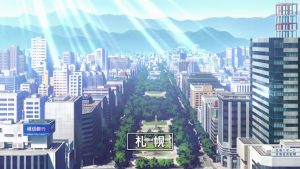 The irony here is that it seems Taiwan is to Japanese baseball what Japan often is to MLB – a place where guys past their prime or not quite good enough go to keep the dream alive. We saw it with Goro from Major, but in his case it’s very different – he was a star, and has plenty of money and a family who needs him. For Tohko and Nishigouchi, Taiwan is a lifeline – a chance to keep their careers alive and their bills paid. They both end up on the same team, the only one to send scouts to the Fukuoka tryouts – and both of them are thrilled to get the call. It’s hard to imagine pro baseball depicted less glamorously then Gurazeni depicted it this week – but that’s a big reason why this series is as great as it is.
The irony here is that it seems Taiwan is to Japanese baseball what Japan often is to MLB – a place where guys past their prime or not quite good enough go to keep the dream alive. We saw it with Goro from Major, but in his case it’s very different – he was a star, and has plenty of money and a family who needs him. For Tohko and Nishigouchi, Taiwan is a lifeline – a chance to keep their careers alive and their bills paid. They both end up on the same team, the only one to send scouts to the Fukuoka tryouts – and both of them are thrilled to get the call. It’s hard to imagine pro baseball depicted less glamorously then Gurazeni depicted it this week – but that’s a big reason why this series is as great as it is.


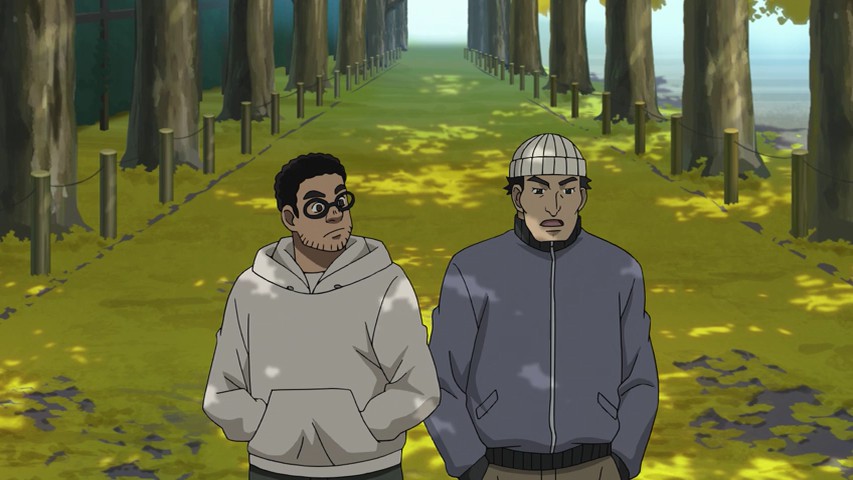
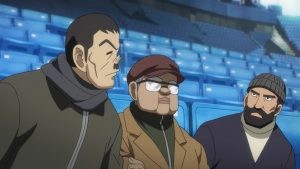
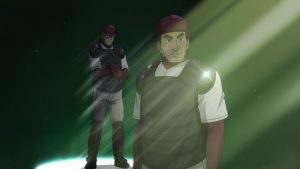
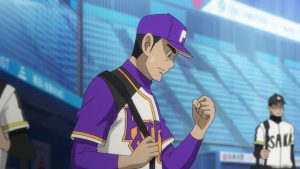

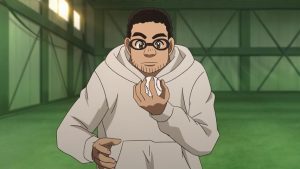
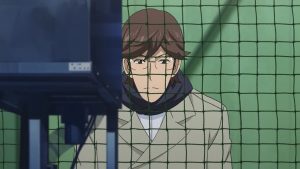

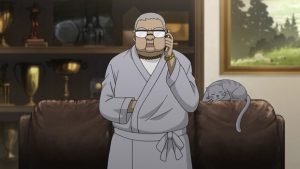
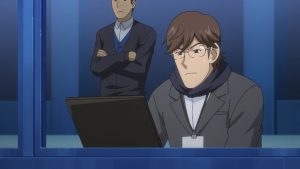
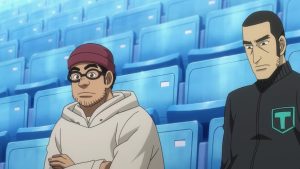
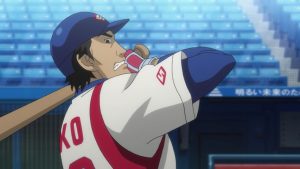

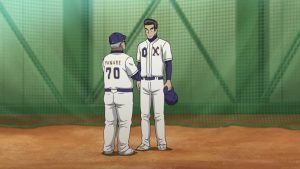


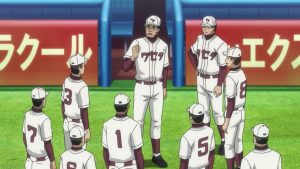
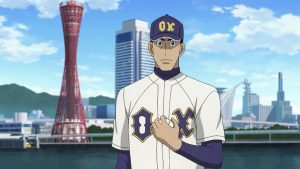
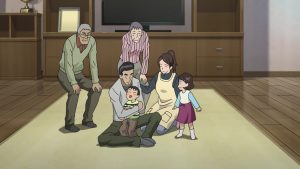
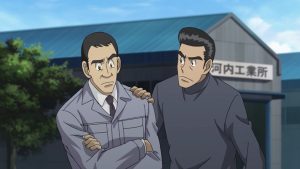
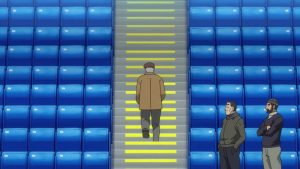
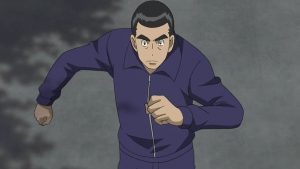
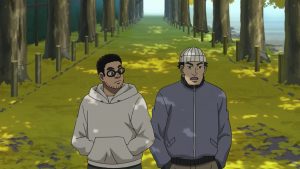
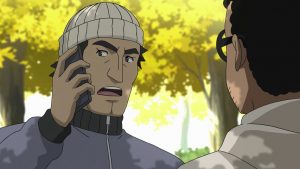
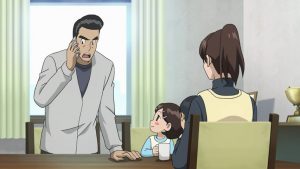
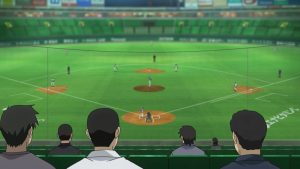
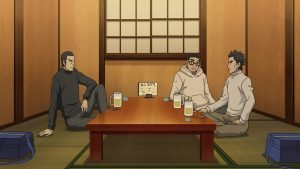

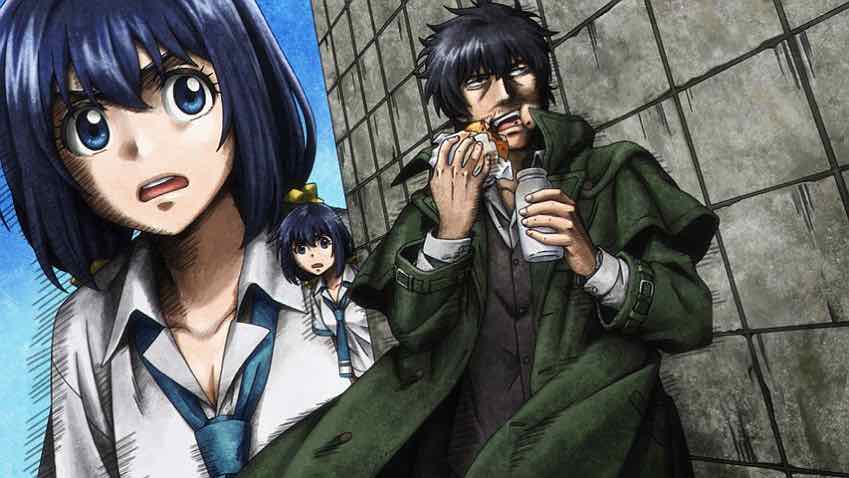
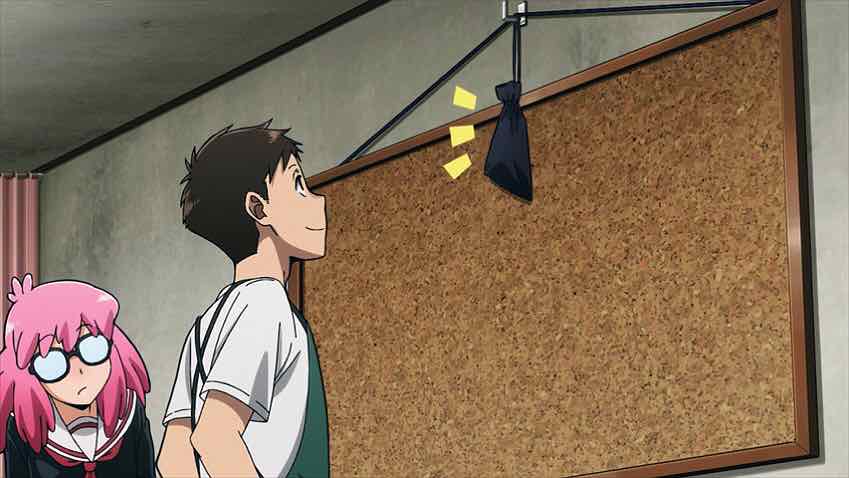
leongsh
November 17, 2018 at 10:06 pmJust for context and an understanding of why Nishigouchi ia concerned about taxes, Nishigouchi’s JPY 150 million contract would require him to pay about 43% income tax (the highest tax bracket) + 4% prefectural tax + 6% municipal tax on his taxable income. It’s a huge sum to pay.
Dop
November 18, 2018 at 7:26 amI know nothing about Baseball but I do love this show as it’s not so much about playing the sport as it is about the realities of people who aren’t Big Sports Stars but just trying to use their skills to get by, make a living, and have some kind of arrangement for when their sporting career ends. It just seems totally grounded in reality and that’s why I like it so much.
Guardian Enzo
November 18, 2018 at 8:16 amSpot-on.